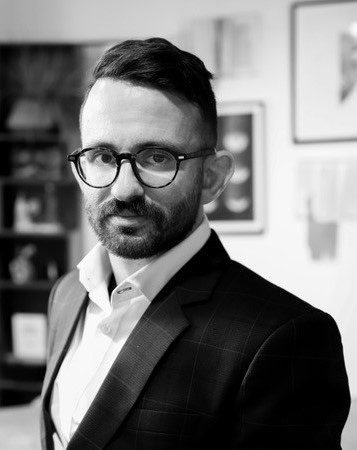In late November 2024, the Wall Street Journal (WSJ) published an investigation into the anti-money laundering (AML) shortcomings of a major US bank’s wealth management branch.

Lev Yuriditsky
The investigation came just one year after the WSJ initially reported on the US Federal Reserve’s scrutiny of that bank’s methods for investigating its high net worth and ultra-high net worth (HNW and UHNW) foreign clients and a half year after the newspaper reported that this investigation expanded to include the US Securities and Exchange Commission (SEC), Office of the Comptroller of the Currency (OCC), and other Treasury Department offices.
The bank, which acknowledged having weak AML controls, marked 24% of its wealth management accounts as high risk for money laundering. Furthermore, as early as 2022, an internal risk team found that 60% of international accounts that advisers tried to open had errors, including missing documents and overstated income.
The issue was clearly systemic – the bank did not invest adequately into its AML procedures and prioritized the speed of onboarding new clients over proper vetting practices.
Beyond the documentation issue mentioned above, this was further evident in the lack of Spanish speakers within their vetting staff and low pay for temporary Spanish speakers working in the Baltimore office despite the number of customers in high-risk Latin American jurisdictions being onboarded and courted.
In addition, according to the WSJ, the bank had significant bottlenecks in their AML procedures, which led to the delays in the proper approval processes for thousands of accounts, witht which the bank proceeded regardless of insufficient and delayed vetting. Even basic Google searches — which should be considered a bare minimum requirement for due diligence checks especially for higher risk clients — were not conducted.
Although it’s difficult to determine the number of individuals onboarded by the bank amid the AML failures, the WSJ highlighted the cases of (1) an al-Qaeda (AQ) linked individual, and (2) a Canadian national claiming to be a Romanian princess with a net worth of over USD 5 billion.
Both accounts were open despite glaring red flags and, considering some of the high risk jurisdictions from where the wealth management branch’s clients hailed, there were likely countless other customers that should have never been permitted to open accounts.
To the bank’s credit, since 2022 they have clearly taken significant strides in order to course correct. Indeed, they placed various restrictions on at least ten types of clients, shuttered thousands of accounts in mid-2023, pulled back from high risk business in Latin America, and, in July 2024, announced that they recruited a new head of global financial crimes. Finally, the bank is also investing heavily in technology to increase their efficiency in conducting KYC checks and to address the relatively easily fixable issue of paper documentation that helped contribute to some of the AML inadequacies.
While this particular story focuses on one bank, they are certainly not alone in facing hurdles in properly vetting HNW and UNHW clients, particularly those with foreign nationality and especially those connected to higher risk jurisdictions. Such individuals pose unique challenges, including the breadth of language skills that a compliance team must have for adequate vetting, poor access to official records pertaining to related businesses, or even the inability to independently confirm the veracity of such documents.
These individuals often have an increased likelihood of exposure to multiple jurisdictions with extensive personal and business networks that often include other high profile individuals. In other words, they are at higher risk of exposure to sanctions, corruption, political connections, and even organized crime or terror financing. Of course, alongside these difficulties, compliance teams also face internal pressure to expedite the process so that the client can be onboarded.
It is precisely these sorts of challenges that outsourcing due diligence solves. An experienced enhanced due diligence consulting firm has the trained, expert analysts with the language skills, regional and local understanding, and vetted global sources necessary to provide a comprehensive, 360-degree picture of an individual or company.
A firm like Sqope Intelligence provides the intelligence you need, particularly on complex, difficult cases for which internal teams often lack the experience, time or other resources. With over 15 years of experience, a team of highly trained and experienced analysts who speak over 20 languages, our own proprietary source database and a network of nearly 100 investigators globally, we have the ability to paint a clear picture of your client or prospect, allowing you to make an informed decision on who you want to onboard.


